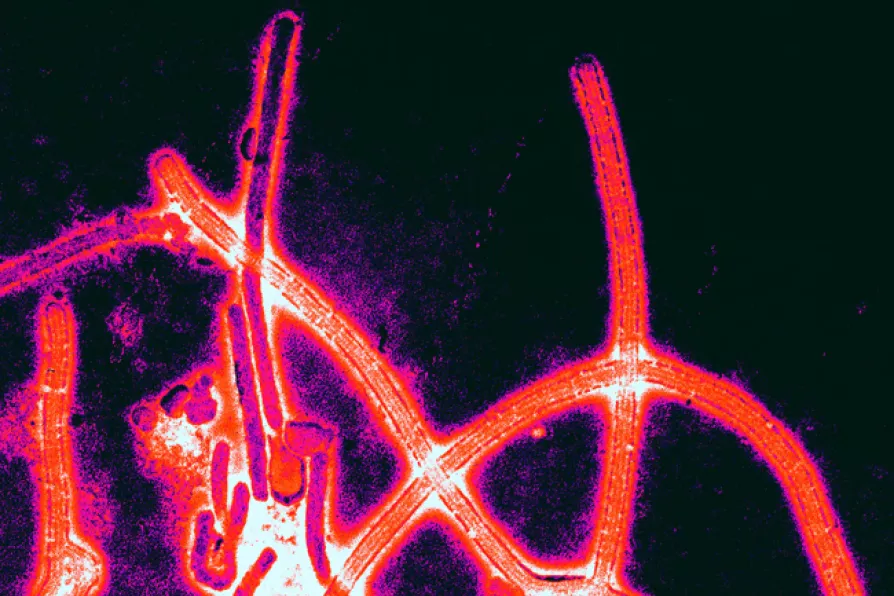As tens of thousands return to the streets for the first national Palestine march of 2026, this movement refuses to be sidelined or silenced, says PETER LEARY

 ‘Bad news wrapped in protein’ — microscopic particles of the Ebola virus, which is spreading in the DRC
[Thomas W Geisbert / Creative Commons]
‘Bad news wrapped in protein’ — microscopic particles of the Ebola virus, which is spreading in the DRC
[Thomas W Geisbert / Creative Commons]
YOU have probably heard of Ebola because of the shocking outbreak that started along the west coast of Africa in 2013: the biggest Ebola outbreak ever.
Over the course of three years, 28,000 people were infected, resulting in over 10,000 deaths, mostly in Guinea, Sierra Leone and Liberia.
There have since been three more outbreaks, all in the Democratic Republic of Congo. Two of these outbreaks were snuffed out quickly before they even reached 100 infections, due to a rapid response by the Congolese government and international health authorities.
But the third outbreak, which started last August and is still ongoing, has been described by the WHO’s deputy director-general for emergency preparedness and response as a “perfect storm.”
This latest outbreak has been bubbling away under the surface in the Kivu region along the eastern Congolese border with Uganda and Rwanda. So far, there have around 840 Ebola cases and 530 deaths (these numbers are always a “best guess” while the chaos of the outbreak unfolds).














